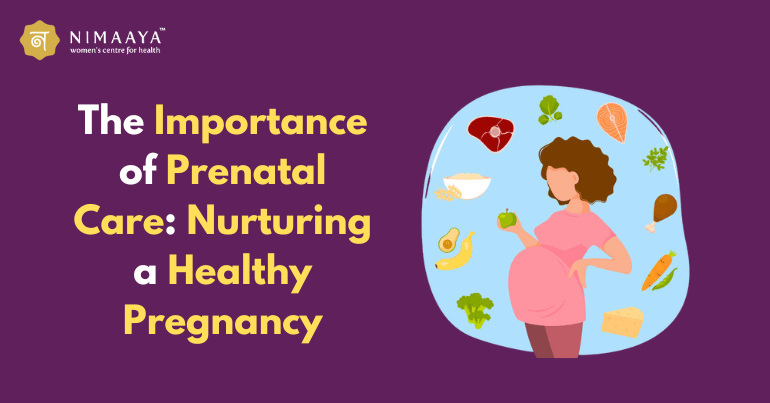
The Importance of Prenatal Care for a Healthy Pregnancy and Delivery
Prenatal care is a crucial aspect of ensuring a healthy pregnancy and delivery. It involves regular checkups and screenings throughout the gestation period to monitor the health of both the mother and the developing fetus. By providing timely interventions and guidance, prenatal care plays a pivotal role in reducing the risks associated with pregnancy and childbirth.
Benefits of Prenatal Care
-
Early Detection and Treatment of Complications: Prenatal care allows healthcare providers to identify and address potential complications early on. This includes conditions such as gestational diabetes, preeclampsia, and fetal abnormalities. Early detection and treatment can significantly improve outcomes for both the mother and the baby.
-
Monitoring Fetal Growth and Development: Regular ultrasounds and other tests help track the baby’s growth and development. This information can identify any potential issues, such as growth restriction or birth defects, allowing for appropriate interventions.
-
Nutritional Guidance and Support: Prenatal care provides personalized nutritional advice to ensure the mother is receiving adequate nutrients for her and the baby’s health. This includes recommendations on diet, supplements, and lifestyle modifications.
-
Education and Empowerment: Prenatal care sessions offer education and support to expectant mothers. They cover topics such as pregnancy symptoms, labor and delivery, breastfeeding, and newborn care. This knowledge empowers women to make informed decisions about their health and the well-being of their child.
-
Reduced Risk of Preterm Birth and Low Birth Weight: Regular prenatal care has been shown to reduce the risk of preterm birth and low birth weight. These conditions can have significant health implications for the baby, including increased risk of developmental problems and long-term health issues.
-
Improved Maternal Health: Prenatal care promotes the overall health of the mother. It includes screenings for conditions such as anemia, thyroid disorders, and infections. Early detection and treatment of these conditions can prevent complications and improve the mother’s well-being.
-
Psychological Support: Pregnancy can be an emotionally challenging time. Prenatal care provides a supportive environment where women can discuss their concerns, fears, and expectations. This support can help reduce stress and anxiety, promoting a positive pregnancy experience.
Components of Prenatal Care
Prenatal care typically involves a series of scheduled appointments with a healthcare provider, usually an obstetrician or midwife. These appointments may include:
-
Physical Exams: Regular physical exams assess the mother’s overall health, including blood pressure, weight, and fetal heart rate.
-
Ultrasound Exams: Ultrasounds provide images of the developing fetus, allowing healthcare providers to monitor growth, position, and any potential abnormalities.
-
Blood Tests: Blood tests screen for conditions such as anemia, gestational diabetes, and infections.
-
Urine Tests: Urine tests check for protein levels, which can indicate preeclampsia.
-
Nutritional Counseling: Personalized nutritional guidance is provided to ensure adequate intake of essential nutrients.
-
Education and Support: Education sessions cover various aspects of pregnancy, labor, delivery, and newborn care.
Frequency of Prenatal Care
The frequency of prenatal care appointments varies depending on the stage of pregnancy and the mother’s individual health needs. Generally, appointments are scheduled as follows:
-
First Trimester (Weeks 0-12): Monthly appointments
-
Second Trimester (Weeks 13-27): Every 2-3 weeks
-
Third Trimester (Weeks 28-40): Weekly appointments
Who Needs Prenatal Care?
All pregnant women should receive prenatal care, regardless of their age, health status, or socioeconomic background. It is particularly important for women with certain risk factors, such as:
-
Advanced maternal age (over 35)
-
Multiple pregnancies
-
Previous pregnancy complications
-
Chronic health conditions (e.g., diabetes, hypertension)
-
Substance use
Conclusion
Prenatal care is an essential component of a healthy pregnancy and delivery. It provides timely interventions, monitoring, and support to ensure the well-being of both the mother and the developing fetus. By reducing the risks associated with pregnancy and childbirth, prenatal care contributes to positive outcomes for families and promotes the health of future generations.
Additional Tips for Expectant Mothers
-
Choose a healthcare provider you trust and feel comfortable with.
-
Attend all scheduled prenatal appointments.
-
Follow your healthcare provider’s instructions carefully.
-
Eat a healthy diet and take prenatal vitamins as recommended.
-
Get regular exercise and maintain a healthy weight.
-
Avoid smoking, alcohol, and illicit drugs.
-
Manage stress through relaxation techniques or support groups.
-
Seek support from family, friends, or a doula if needed.
By following these recommendations, expectant mothers can optimize their health and create the best possible conditions for a healthy pregnancy and delivery.